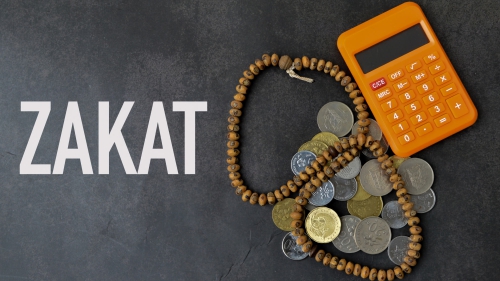a:19:{s:8:"theTitle";s:21:"Join: Salat al-Tasbih";s:12:"thePermalink";s:55:"https://www.islamicity.org/101006/join-salat-al-tasbih/";s:13:"theAuthorName";s:12:" IslamiCity ";s:12:"theThumbnail";s:80:"https://media.islamicity.org/wp-content/uploads/2020/03/mosque-skyline-night.jpg";s:6:"isWhat";s:5:"audio";s:7:"theIcon";s:38:"";s:8:"theEmbed";s:43:"https://www.youtube.com/watch?v=zvMnsDY598Y";s:11:"theCategory";s:44:"cannot-retrieve-category-see-cell-part-1.php";s:6:"theTag";s:37:"prayers (salah)|/topics/prayers-salah";s:7:"theDate";s:11:"Mar 27 2025";s:11:"theDate_ORG";s:39:"March 29, 2024 {wpcf-soft-date engaged}";s:9:"theAuthor";s:31:" IslamiCity |/source/islamicity";s:5:"theID";i:101006;s:14:"theReadingTime";s:6:"2 min.";s:10:"theExcerpt";s:166:"SALAT AL-TASBIH WILL STREAM ON THIS PAGE ON March 27, 2025, at 11:00 PM Pacific.
During Ramadan and special occasions, we hold a virtual Salat Al-Tasbih led by Dr.";s:12:"theTitle_ORG";s:21:"Join: Salat al-Tasbih";s:25:"processRelatedFacetsTitle";s:0:"";s:15:"whereItCameFrom";s:46:"content.php & related posts > post_tag=ramadan";s:8:"theFacet";s:0:"";}
a:19:{s:8:"theTitle";s:39:"Zakat: Its Concept and Purpose in Islam";s:12:"thePermalink";s:72:"https://www.islamicity.org/12178/zakat-its-concept-and-purpose-in-islam/";s:13:"theAuthorName";s:12:"Mansoor Alam";s:12:"theThumbnail";s:77:"https://media.islamicity.org/wp-content/uploads/2022/04/iStock-1384494138.jpg";s:6:"isWhat";s:7:"article";s:7:"theIcon";s:0:"";s:8:"theEmbed";s:0:"";s:11:"theCategory";s:44:"cannot-retrieve-category-see-cell-part-1.php";s:6:"theTag";s:23:"ramadan|/topics/ramadan";s:7:"theDate";s:11:"Mar 27 2025";s:11:"theDate_ORG";s:38:"June 14, 2017 {wpcf-soft-date engaged}";s:9:"theAuthor";s:29:"Mansoor Alam|/by/mansoor-alam";s:5:"theID";i:12178;s:14:"theReadingTime";s:7:"11 min.";s:10:"theExcerpt";s:186:"Zakat system created the first universal welfare system in human history
The Prophet’s (PBUH) achievements were based not on ephemeral but on the permanent values of the Quran......";s:12:"theTitle_ORG";s:39:"Zakat: Its Concept and Purpose in Islam";s:25:"processRelatedFacetsTitle";s:0:"";s:15:"whereItCameFrom";s:46:"content.php & related posts > post_tag=ramadan";s:8:"theFacet";s:0:"";}
a:19:{s:8:"theTitle";s:29:"Laylatul Qadr: Values of Life";s:12:"thePermalink";s:62:"https://www.islamicity.org/41986/laylatul-qadr-values-of-life/";s:13:"theAuthorName";s:12:"Mansoor Alam";s:12:"theThumbnail";s:74:"https://media.islamicity.org/wp-content/uploads/2020/05/Night_of_Power.jpg";s:6:"isWhat";s:7:"article";s:7:"theIcon";s:0:"";s:8:"theEmbed";s:0:"";s:11:"theCategory";s:44:"cannot-retrieve-category-see-cell-part-1.php";s:6:"theTag";s:69:"night of power (laylat al qadr)|/topics/night-of-power-laylat-al-qadr";s:7:"theDate";s:11:"Mar 27 2025";s:11:"theDate_ORG";s:37:"May 19, 2020 {wpcf-soft-date engaged}";s:9:"theAuthor";s:29:"Mansoor Alam|/by/mansoor-alam";s:5:"theID";i:41986;s:14:"theReadingTime";s:7:"13 min.";s:10:"theExcerpt";s:186:"This is the month of Ramadan in which the Quran was revealed:
شَهْرُ رَمَضَانَ الَّذِي أُنزِلَ فِيهِ الْقُرْآنُ هُدًى لِّلن......";s:12:"theTitle_ORG";s:29:"Laylatul Qadr: Values of Life";s:25:"processRelatedFacetsTitle";s:0:"";s:15:"whereItCameFrom";s:46:"content.php & related posts > post_tag=ramadan";s:8:"theFacet";s:0:"";}
a:19:{s:8:"theTitle";s:63:"The Lasting Lessons of Ramadan: Spiritual Growth and Reflection";s:12:"thePermalink";s:97:"https://www.islamicity.org/104390/the-lasting-lessons-of-ramadan-spiritual-growth-and-reflection/";s:13:"theAuthorName";s:22:"Mohd Abbas Abdul Razak";s:12:"theThumbnail";s:82:"https://media.islamicity.org/wp-content/uploads/2025/03/ramadan-and-its-effect.jpg";s:6:"isWhat";s:7:"article";s:7:"theIcon";s:0:"";s:8:"theEmbed";s:0:"";s:11:"theCategory";s:44:"cannot-retrieve-category-see-cell-part-1.php";s:6:"theTag";s:37:"muslim beliefs|/topics/muslim-beliefs";s:7:"theDate";s:11:"Mar 26 2025";s:11:"theDate_ORG";s:39:"March 25, 2025 {wpcf-soft-date engaged}";s:9:"theAuthor";s:49:"Mohd Abbas Abdul Razak|/by/mohd-abbas-abdul-razak";s:5:"theID";i:104390;s:14:"theReadingTime";s:6:"7 min.";s:10:"theExcerpt";s:101:"Ramadhan, the obligatory fasting month for Muslims, falls in the ninth month of the Islamic calendar.";s:12:"theTitle_ORG";s:63:"The Lasting Lessons of Ramadan: Spiritual Growth and Reflection";s:25:"processRelatedFacetsTitle";s:0:"";s:15:"whereItCameFrom";s:46:"content.php & related posts > post_tag=ramadan";s:8:"theFacet";s:0:"";}
a:19:{s:8:"theTitle";s:29:"The Night of Power in Ramadan";s:12:"thePermalink";s:63:"https://www.islamicity.org/15695/the-night-of-power-in-ramadan/";s:13:"theAuthorName";s:21:"Darussalam Publishers";s:12:"theThumbnail";s:75:"http://media.islamicity.org/wp-content/uploads/2018/06/iStock-656148676.jpg";s:6:"isWhat";s:7:"article";s:7:"theIcon";s:0:"";s:8:"theEmbed";s:0:"";s:11:"theCategory";s:44:"cannot-retrieve-category-see-cell-part-1.php";s:6:"theTag";s:69:"night of power (laylat al qadr)|/topics/night-of-power-laylat-al-qadr";s:7:"theDate";s:11:"Mar 25 2025";s:11:"theDate_ORG";s:37:"June 4, 2018 {wpcf-soft-date engaged}";s:9:"theAuthor";s:51:"Darussalam Publishers|/source/darussalam-publishers";s:5:"theID";i:15695;s:14:"theReadingTime";s:6:"9 min.";s:10:"theExcerpt";s:74:"We are in a month of abundant goodness, great righteousness and blessings.";s:12:"theTitle_ORG";s:29:"The Night of Power in Ramadan";s:25:"processRelatedFacetsTitle";s:0:"";s:15:"whereItCameFrom";s:46:"content.php & related posts > post_tag=ramadan";s:8:"theFacet";s:0:"";}
a:19:{s:8:"theTitle";s:35:"The Story Behind the Night of Power";s:12:"thePermalink";s:70:"https://www.islamicity.org/101121/the-story-behind-the-night-of-power/";s:13:"theAuthorName";s:14:"Hamza Karamali";s:12:"theThumbnail";s:56:"https://img.youtube.com/vi/6PE5DkOKIgA/maxresdefault.jpg";s:6:"isWhat";s:5:"video";s:7:"theIcon";s:33:"";s:8:"theEmbed";s:43:"https://www.youtube.com/watch?v=6PE5DkOKIgA";s:11:"theCategory";s:44:"cannot-retrieve-category-see-cell-part-1.php";s:6:"theTag";s:23:"ramadan|/topics/ramadan";s:7:"theDate";s:11:"Mar 24 2025";s:11:"theDate_ORG";s:38:"April 4, 2024 {wpcf-soft-date engaged}";s:9:"theAuthor";s:33:"Hamza Karamali|/by/hamza-karamali";s:5:"theID";i:101121;s:14:"theReadingTime";s:7:"33 min.";s:10:"theExcerpt";s:142:"Join Hamza Karamali on his Ramadan Forever Challenge to make this Ramadan last forever, with a change that stays with you when Ramadan leaves.";s:12:"theTitle_ORG";s:35:"The Story Behind the Night of Power";s:25:"processRelatedFacetsTitle";s:0:"";s:15:"whereItCameFrom";s:46:"content.php & related posts > post_tag=ramadan";s:8:"theFacet";s:0:"";}
a:19:{s:8:"theTitle";s:34:"What Should You Do After Ramadan ?";s:12:"thePermalink";s:67:"https://www.islamicity.org/101323/what-should-you-do-after-ramadan/";s:13:"theAuthorName";s:17:"Mufti Ismail Menk";s:12:"theThumbnail";s:56:"https://img.youtube.com/vi/zeu_P4x3fUo/maxresdefault.jpg";s:6:"isWhat";s:5:"video";s:7:"theIcon";s:33:"";s:8:"theEmbed";s:43:"https://www.youtube.com/watch?v=zeu_P4x3fUo";s:11:"theCategory";s:44:"cannot-retrieve-category-see-cell-part-1.php";s:6:"theTag";s:23:"ramadan|/topics/ramadan";s:7:"theDate";s:10:"Apr 2 2025";s:11:"theDate_ORG";s:39:"April 15, 2024 {wpcf-soft-date engaged}";s:9:"theAuthor";s:39:"Mufti Ismail Menk|/by/mufti-ismail-menk";s:5:"theID";i:101323;s:14:"theReadingTime";s:0:"";s:10:"theExcerpt";s:73:"In this video, Mufti Menk discusses what we should do after Ramadan ends.";s:12:"theTitle_ORG";s:34:"What Should You Do After Ramadan ?";s:25:"processRelatedFacetsTitle";s:0:"";s:15:"whereItCameFrom";s:46:"content.php & related posts > post_tag=ramadan";s:8:"theFacet";s:0:"";}
a:19:{s:8:"theTitle";s:41:"Eid al-Fitr: An Introspective Celebration";s:12:"thePermalink";s:73:"https://www.islamicity.org/9011/eid-al-fitr-an-introspective-celebration/";s:13:"theAuthorName";s:13:"Sadullah Khan";s:12:"theThumbnail";s:73:"http://media.islamicity.org/wp-content/uploads/2015/07/EidMubarak1400.jpg";s:6:"isWhat";s:7:"article";s:7:"theIcon";s:0:"";s:8:"theEmbed";s:0:"";s:11:"theCategory";s:44:"cannot-retrieve-category-see-cell-part-1.php";s:6:"theTag";s:31:"eid al-fitr|/topics/eid-al-fitr";s:7:"theDate";s:11:"Mar 30 2025";s:11:"theDate_ORG";s:38:"July 15, 2015 {wpcf-soft-date engaged}";s:9:"theAuthor";s:31:"Sadullah Khan|/by/sadullah-khan";s:5:"theID";i:9011;s:14:"theReadingTime";s:6:"5 min.";s:10:"theExcerpt";s:186:"We are bidding al-widā/farewell to the blessed month of Ramadān, the month of the Qur'ān, the month of siyām/fasting, the month of qiyām/night prayers, the month of ghufrān/f......";s:12:"theTitle_ORG";s:41:"Eid al-Fitr: An Introspective Celebration";s:25:"processRelatedFacetsTitle";s:0:"";s:15:"whereItCameFrom";s:46:"content.php & related posts > post_tag=ramadan";s:8:"theFacet";s:0:"";}
a:19:{s:8:"theTitle";s:46:"Zakat-ul-Fitr must be given before Eid Prayers";s:12:"thePermalink";s:79:"https://www.islamicity.org/4905/zakat-ul-fitr-must-be-given-before-eid-prayers/";s:13:"theAuthorName";s:12:" IslamiCity ";s:12:"theThumbnail";s:75:"https://media.islamicity.org/wp-content/uploads/2023/04/ZAKAT-AL-FITR-1.png";s:6:"isWhat";s:7:"article";s:7:"theIcon";s:0:"";s:8:"theEmbed";s:0:"";s:11:"theCategory";s:44:"cannot-retrieve-category-see-cell-part-1.php";s:6:"theTag";s:31:"eid al-fitr|/topics/eid-al-fitr";s:7:"theDate";s:11:"Mar 30 2025";s:11:"theDate_ORG";s:41:"October 27, 2005 {wpcf-soft-date engaged}";s:9:"theAuthor";s:31:" IslamiCity |/source/islamicity";s:5:"theID";i:4905;s:14:"theReadingTime";s:6:"2 min.";s:10:"theExcerpt";s:94:"Zakat-ul-Fitr is part of the fast of Ramadan and is characterized by the following elements ..";s:12:"theTitle_ORG";s:46:"Zakat-ul-Fitr must be given before Eid Prayers";s:25:"processRelatedFacetsTitle";s:0:"";s:15:"whereItCameFrom";s:46:"content.php & related posts > post_tag=ramadan";s:8:"theFacet";s:0:"";}
a:19:{s:8:"theTitle";s:23:"How to Offer Eid Prayer";s:12:"thePermalink";s:57:"https://www.islamicity.org/16066/how-to-offer-eid-prayer/";s:13:"theAuthorName";s:12:" IslamiCity ";s:12:"theThumbnail";s:75:"http://media.islamicity.org/wp-content/uploads/2018/06/iStock-953778344.jpg";s:6:"isWhat";s:7:"article";s:7:"theIcon";s:0:"";s:8:"theEmbed";s:0:"";s:11:"theCategory";s:44:"cannot-retrieve-category-see-cell-part-1.php";s:6:"theTag";s:31:"eid al-fitr|/topics/eid-al-fitr";s:7:"theDate";s:11:"Mar 30 2025";s:11:"theDate_ORG";s:38:"June 14, 2018 {wpcf-soft-date engaged}";s:9:"theAuthor";s:31:" IslamiCity |/source/islamicity";s:5:"theID";i:16066;s:14:"theReadingTime";s:6:"3 min.";s:10:"theExcerpt";s:186:"How to offer Eid prayer:
Ibn Abbass (ra) reported: " I participated in the Eid-ul-Fitr prayer with the Messenger of Allah (saw), Abu Bakr (ra), Umar (ra) and Uthman (ra), and a......";s:12:"theTitle_ORG";s:23:"How to Offer Eid Prayer";s:25:"processRelatedFacetsTitle";s:0:"";s:15:"whereItCameFrom";s:46:"content.php & related posts > post_tag=ramadan";s:8:"theFacet";s:0:"";}
a:19:{s:8:"theTitle";s:28:"I’tikaaf and What It Means";s:12:"thePermalink";s:59:"https://www.islamicity.org/20211/itikaaf-and-what-it-means/";s:13:"theAuthorName";s:12:"Mansoor Alam";s:12:"theThumbnail";s:69:"http://media.islamicity.org/wp-content/uploads/2019/05/Itikaf_isp.jpg";s:6:"isWhat";s:7:"article";s:7:"theIcon";s:0:"";s:8:"theEmbed";s:0:"";s:11:"theCategory";s:44:"cannot-retrieve-category-see-cell-part-1.php";s:6:"theTag";s:65:"dhikr (rememberance of allah)|/topics/dhikr-rememberance-of-allah";s:7:"theDate";s:11:"Mar 28 2025";s:11:"theDate_ORG";s:37:"May 26, 2019 {wpcf-soft-date engaged}";s:9:"theAuthor";s:29:"Mansoor Alam|/by/mansoor-alam";s:5:"theID";i:20211;s:14:"theReadingTime";s:6:"3 min.";s:10:"theExcerpt";s:103:"During Ramadan some Muslims go into seclusion in the mosque and spend time in prayer and contemplation.";s:12:"theTitle_ORG";s:28:"I’tikaaf and What It Means";s:25:"processRelatedFacetsTitle";s:0:"";s:15:"whereItCameFrom";s:46:"content.php & related posts > post_tag=ramadan";s:8:"theFacet";s:0:"";}
a:19:{s:8:"theTitle";s:21:"Join: Salat al-Tasbih";s:12:"thePermalink";s:55:"https://www.islamicity.org/101006/join-salat-al-tasbih/";s:13:"theAuthorName";s:12:" IslamiCity ";s:12:"theThumbnail";s:80:"https://media.islamicity.org/wp-content/uploads/2020/03/mosque-skyline-night.jpg";s:6:"isWhat";s:5:"audio";s:7:"theIcon";s:38:"";s:8:"theEmbed";s:43:"https://www.youtube.com/watch?v=zvMnsDY598Y";s:11:"theCategory";s:44:"cannot-retrieve-category-see-cell-part-1.php";s:6:"theTag";s:37:"prayers (salah)|/topics/prayers-salah";s:7:"theDate";s:11:"Mar 27 2025";s:11:"theDate_ORG";s:39:"March 29, 2024 {wpcf-soft-date engaged}";s:9:"theAuthor";s:31:" IslamiCity |/source/islamicity";s:5:"theID";i:101006;s:14:"theReadingTime";s:6:"2 min.";s:10:"theExcerpt";s:166:"SALAT AL-TASBIH WILL STREAM ON THIS PAGE ON March 27, 2025, at 11:00 PM Pacific.
During Ramadan and special occasions, we hold a virtual Salat Al-Tasbih led by Dr.";s:12:"theTitle_ORG";s:21:"Join: Salat al-Tasbih";s:25:"processRelatedFacetsTitle";s:0:"";s:15:"whereItCameFrom";s:46:"content.php & related posts > post_tag=ramadan";s:8:"theFacet";s:0:"";}
a:19:{s:8:"theTitle";s:39:"Zakat: Its Concept and Purpose in Islam";s:12:"thePermalink";s:72:"https://www.islamicity.org/12178/zakat-its-concept-and-purpose-in-islam/";s:13:"theAuthorName";s:12:"Mansoor Alam";s:12:"theThumbnail";s:77:"https://media.islamicity.org/wp-content/uploads/2022/04/iStock-1384494138.jpg";s:6:"isWhat";s:7:"article";s:7:"theIcon";s:0:"";s:8:"theEmbed";s:0:"";s:11:"theCategory";s:44:"cannot-retrieve-category-see-cell-part-1.php";s:6:"theTag";s:23:"ramadan|/topics/ramadan";s:7:"theDate";s:11:"Mar 27 2025";s:11:"theDate_ORG";s:38:"June 14, 2017 {wpcf-soft-date engaged}";s:9:"theAuthor";s:29:"Mansoor Alam|/by/mansoor-alam";s:5:"theID";i:12178;s:14:"theReadingTime";s:7:"11 min.";s:10:"theExcerpt";s:186:"Zakat system created the first universal welfare system in human history
The Prophet’s (PBUH) achievements were based not on ephemeral but on the permanent values of the Quran......";s:12:"theTitle_ORG";s:39:"Zakat: Its Concept and Purpose in Islam";s:25:"processRelatedFacetsTitle";s:0:"";s:15:"whereItCameFrom";s:46:"content.php & related posts > post_tag=ramadan";s:8:"theFacet";s:0:"";}
a:19:{s:8:"theTitle";s:29:"Laylatul Qadr: Values of Life";s:12:"thePermalink";s:62:"https://www.islamicity.org/41986/laylatul-qadr-values-of-life/";s:13:"theAuthorName";s:12:"Mansoor Alam";s:12:"theThumbnail";s:74:"https://media.islamicity.org/wp-content/uploads/2020/05/Night_of_Power.jpg";s:6:"isWhat";s:7:"article";s:7:"theIcon";s:0:"";s:8:"theEmbed";s:0:"";s:11:"theCategory";s:44:"cannot-retrieve-category-see-cell-part-1.php";s:6:"theTag";s:69:"night of power (laylat al qadr)|/topics/night-of-power-laylat-al-qadr";s:7:"theDate";s:11:"Mar 27 2025";s:11:"theDate_ORG";s:37:"May 19, 2020 {wpcf-soft-date engaged}";s:9:"theAuthor";s:29:"Mansoor Alam|/by/mansoor-alam";s:5:"theID";i:41986;s:14:"theReadingTime";s:7:"13 min.";s:10:"theExcerpt";s:186:"This is the month of Ramadan in which the Quran was revealed:
شَهْرُ رَمَضَانَ الَّذِي أُنزِلَ فِيهِ الْقُرْآنُ هُدًى لِّلن......";s:12:"theTitle_ORG";s:29:"Laylatul Qadr: Values of Life";s:25:"processRelatedFacetsTitle";s:0:"";s:15:"whereItCameFrom";s:46:"content.php & related posts > post_tag=ramadan";s:8:"theFacet";s:0:"";}
a:19:{s:8:"theTitle";s:63:"The Lasting Lessons of Ramadan: Spiritual Growth and Reflection";s:12:"thePermalink";s:97:"https://www.islamicity.org/104390/the-lasting-lessons-of-ramadan-spiritual-growth-and-reflection/";s:13:"theAuthorName";s:22:"Mohd Abbas Abdul Razak";s:12:"theThumbnail";s:82:"https://media.islamicity.org/wp-content/uploads/2025/03/ramadan-and-its-effect.jpg";s:6:"isWhat";s:7:"article";s:7:"theIcon";s:0:"";s:8:"theEmbed";s:0:"";s:11:"theCategory";s:44:"cannot-retrieve-category-see-cell-part-1.php";s:6:"theTag";s:37:"muslim beliefs|/topics/muslim-beliefs";s:7:"theDate";s:11:"Mar 26 2025";s:11:"theDate_ORG";s:39:"March 25, 2025 {wpcf-soft-date engaged}";s:9:"theAuthor";s:49:"Mohd Abbas Abdul Razak|/by/mohd-abbas-abdul-razak";s:5:"theID";i:104390;s:14:"theReadingTime";s:6:"7 min.";s:10:"theExcerpt";s:101:"Ramadhan, the obligatory fasting month for Muslims, falls in the ninth month of the Islamic calendar.";s:12:"theTitle_ORG";s:63:"The Lasting Lessons of Ramadan: Spiritual Growth and Reflection";s:25:"processRelatedFacetsTitle";s:0:"";s:15:"whereItCameFrom";s:46:"content.php & related posts > post_tag=ramadan";s:8:"theFacet";s:0:"";}
a:19:{s:8:"theTitle";s:29:"The Night of Power in Ramadan";s:12:"thePermalink";s:63:"https://www.islamicity.org/15695/the-night-of-power-in-ramadan/";s:13:"theAuthorName";s:21:"Darussalam Publishers";s:12:"theThumbnail";s:75:"http://media.islamicity.org/wp-content/uploads/2018/06/iStock-656148676.jpg";s:6:"isWhat";s:7:"article";s:7:"theIcon";s:0:"";s:8:"theEmbed";s:0:"";s:11:"theCategory";s:44:"cannot-retrieve-category-see-cell-part-1.php";s:6:"theTag";s:69:"night of power (laylat al qadr)|/topics/night-of-power-laylat-al-qadr";s:7:"theDate";s:11:"Mar 25 2025";s:11:"theDate_ORG";s:37:"June 4, 2018 {wpcf-soft-date engaged}";s:9:"theAuthor";s:51:"Darussalam Publishers|/source/darussalam-publishers";s:5:"theID";i:15695;s:14:"theReadingTime";s:6:"9 min.";s:10:"theExcerpt";s:74:"We are in a month of abundant goodness, great righteousness and blessings.";s:12:"theTitle_ORG";s:29:"The Night of Power in Ramadan";s:25:"processRelatedFacetsTitle";s:0:"";s:15:"whereItCameFrom";s:46:"content.php & related posts > post_tag=ramadan";s:8:"theFacet";s:0:"";}
a:19:{s:8:"theTitle";s:35:"The Story Behind the Night of Power";s:12:"thePermalink";s:70:"https://www.islamicity.org/101121/the-story-behind-the-night-of-power/";s:13:"theAuthorName";s:14:"Hamza Karamali";s:12:"theThumbnail";s:56:"https://img.youtube.com/vi/6PE5DkOKIgA/maxresdefault.jpg";s:6:"isWhat";s:5:"video";s:7:"theIcon";s:33:"";s:8:"theEmbed";s:43:"https://www.youtube.com/watch?v=6PE5DkOKIgA";s:11:"theCategory";s:44:"cannot-retrieve-category-see-cell-part-1.php";s:6:"theTag";s:23:"ramadan|/topics/ramadan";s:7:"theDate";s:11:"Mar 24 2025";s:11:"theDate_ORG";s:38:"April 4, 2024 {wpcf-soft-date engaged}";s:9:"theAuthor";s:33:"Hamza Karamali|/by/hamza-karamali";s:5:"theID";i:101121;s:14:"theReadingTime";s:7:"33 min.";s:10:"theExcerpt";s:142:"Join Hamza Karamali on his Ramadan Forever Challenge to make this Ramadan last forever, with a change that stays with you when Ramadan leaves.";s:12:"theTitle_ORG";s:35:"The Story Behind the Night of Power";s:25:"processRelatedFacetsTitle";s:0:"";s:15:"whereItCameFrom";s:46:"content.php & related posts > post_tag=ramadan";s:8:"theFacet";s:0:"";}
a:19:{s:8:"theTitle";s:34:"What Should You Do After Ramadan ?";s:12:"thePermalink";s:67:"https://www.islamicity.org/101323/what-should-you-do-after-ramadan/";s:13:"theAuthorName";s:17:"Mufti Ismail Menk";s:12:"theThumbnail";s:56:"https://img.youtube.com/vi/zeu_P4x3fUo/maxresdefault.jpg";s:6:"isWhat";s:5:"video";s:7:"theIcon";s:33:"";s:8:"theEmbed";s:43:"https://www.youtube.com/watch?v=zeu_P4x3fUo";s:11:"theCategory";s:44:"cannot-retrieve-category-see-cell-part-1.php";s:6:"theTag";s:23:"ramadan|/topics/ramadan";s:7:"theDate";s:10:"Apr 2 2025";s:11:"theDate_ORG";s:39:"April 15, 2024 {wpcf-soft-date engaged}";s:9:"theAuthor";s:39:"Mufti Ismail Menk|/by/mufti-ismail-menk";s:5:"theID";i:101323;s:14:"theReadingTime";s:0:"";s:10:"theExcerpt";s:73:"In this video, Mufti Menk discusses what we should do after Ramadan ends.";s:12:"theTitle_ORG";s:34:"What Should You Do After Ramadan ?";s:25:"processRelatedFacetsTitle";s:0:"";s:15:"whereItCameFrom";s:46:"content.php & related posts > post_tag=ramadan";s:8:"theFacet";s:0:"";}
a:19:{s:8:"theTitle";s:41:"Eid al-Fitr: An Introspective Celebration";s:12:"thePermalink";s:73:"https://www.islamicity.org/9011/eid-al-fitr-an-introspective-celebration/";s:13:"theAuthorName";s:13:"Sadullah Khan";s:12:"theThumbnail";s:73:"http://media.islamicity.org/wp-content/uploads/2015/07/EidMubarak1400.jpg";s:6:"isWhat";s:7:"article";s:7:"theIcon";s:0:"";s:8:"theEmbed";s:0:"";s:11:"theCategory";s:44:"cannot-retrieve-category-see-cell-part-1.php";s:6:"theTag";s:31:"eid al-fitr|/topics/eid-al-fitr";s:7:"theDate";s:11:"Mar 30 2025";s:11:"theDate_ORG";s:38:"July 15, 2015 {wpcf-soft-date engaged}";s:9:"theAuthor";s:31:"Sadullah Khan|/by/sadullah-khan";s:5:"theID";i:9011;s:14:"theReadingTime";s:6:"5 min.";s:10:"theExcerpt";s:186:"We are bidding al-widā/farewell to the blessed month of Ramadān, the month of the Qur'ān, the month of siyām/fasting, the month of qiyām/night prayers, the month of ghufrān/f......";s:12:"theTitle_ORG";s:41:"Eid al-Fitr: An Introspective Celebration";s:25:"processRelatedFacetsTitle";s:0:"";s:15:"whereItCameFrom";s:46:"content.php & related posts > post_tag=ramadan";s:8:"theFacet";s:0:"";}
a:19:{s:8:"theTitle";s:46:"Zakat-ul-Fitr must be given before Eid Prayers";s:12:"thePermalink";s:79:"https://www.islamicity.org/4905/zakat-ul-fitr-must-be-given-before-eid-prayers/";s:13:"theAuthorName";s:12:" IslamiCity ";s:12:"theThumbnail";s:75:"https://media.islamicity.org/wp-content/uploads/2023/04/ZAKAT-AL-FITR-1.png";s:6:"isWhat";s:7:"article";s:7:"theIcon";s:0:"";s:8:"theEmbed";s:0:"";s:11:"theCategory";s:44:"cannot-retrieve-category-see-cell-part-1.php";s:6:"theTag";s:31:"eid al-fitr|/topics/eid-al-fitr";s:7:"theDate";s:11:"Mar 30 2025";s:11:"theDate_ORG";s:41:"October 27, 2005 {wpcf-soft-date engaged}";s:9:"theAuthor";s:31:" IslamiCity |/source/islamicity";s:5:"theID";i:4905;s:14:"theReadingTime";s:6:"2 min.";s:10:"theExcerpt";s:94:"Zakat-ul-Fitr is part of the fast of Ramadan and is characterized by the following elements ..";s:12:"theTitle_ORG";s:46:"Zakat-ul-Fitr must be given before Eid Prayers";s:25:"processRelatedFacetsTitle";s:0:"";s:15:"whereItCameFrom";s:46:"content.php & related posts > post_tag=ramadan";s:8:"theFacet";s:0:"";}
a:19:{s:8:"theTitle";s:23:"How to Offer Eid Prayer";s:12:"thePermalink";s:57:"https://www.islamicity.org/16066/how-to-offer-eid-prayer/";s:13:"theAuthorName";s:12:" IslamiCity ";s:12:"theThumbnail";s:75:"http://media.islamicity.org/wp-content/uploads/2018/06/iStock-953778344.jpg";s:6:"isWhat";s:7:"article";s:7:"theIcon";s:0:"";s:8:"theEmbed";s:0:"";s:11:"theCategory";s:44:"cannot-retrieve-category-see-cell-part-1.php";s:6:"theTag";s:31:"eid al-fitr|/topics/eid-al-fitr";s:7:"theDate";s:11:"Mar 30 2025";s:11:"theDate_ORG";s:38:"June 14, 2018 {wpcf-soft-date engaged}";s:9:"theAuthor";s:31:" IslamiCity |/source/islamicity";s:5:"theID";i:16066;s:14:"theReadingTime";s:6:"3 min.";s:10:"theExcerpt";s:186:"How to offer Eid prayer:
Ibn Abbass (ra) reported: " I participated in the Eid-ul-Fitr prayer with the Messenger of Allah (saw), Abu Bakr (ra), Umar (ra) and Uthman (ra), and a......";s:12:"theTitle_ORG";s:23:"How to Offer Eid Prayer";s:25:"processRelatedFacetsTitle";s:0:"";s:15:"whereItCameFrom";s:46:"content.php & related posts > post_tag=ramadan";s:8:"theFacet";s:0:"";}
a:19:{s:8:"theTitle";s:28:"I’tikaaf and What It Means";s:12:"thePermalink";s:59:"https://www.islamicity.org/20211/itikaaf-and-what-it-means/";s:13:"theAuthorName";s:12:"Mansoor Alam";s:12:"theThumbnail";s:69:"http://media.islamicity.org/wp-content/uploads/2019/05/Itikaf_isp.jpg";s:6:"isWhat";s:7:"article";s:7:"theIcon";s:0:"";s:8:"theEmbed";s:0:"";s:11:"theCategory";s:44:"cannot-retrieve-category-see-cell-part-1.php";s:6:"theTag";s:65:"dhikr (rememberance of allah)|/topics/dhikr-rememberance-of-allah";s:7:"theDate";s:11:"Mar 28 2025";s:11:"theDate_ORG";s:37:"May 26, 2019 {wpcf-soft-date engaged}";s:9:"theAuthor";s:29:"Mansoor Alam|/by/mansoor-alam";s:5:"theID";i:20211;s:14:"theReadingTime";s:6:"3 min.";s:10:"theExcerpt";s:103:"During Ramadan some Muslims go into seclusion in the mosque and spend time in prayer and contemplation.";s:12:"theTitle_ORG";s:28:"I’tikaaf and What It Means";s:25:"processRelatedFacetsTitle";s:0:"";s:15:"whereItCameFrom";s:46:"content.php & related posts > post_tag=ramadan";s:8:"theFacet";s:0:"";}
a:19:{s:8:"theTitle";s:21:"Join: Salat al-Tasbih";s:12:"thePermalink";s:55:"https://www.islamicity.org/101006/join-salat-al-tasbih/";s:13:"theAuthorName";s:12:" IslamiCity ";s:12:"theThumbnail";s:80:"https://media.islamicity.org/wp-content/uploads/2020/03/mosque-skyline-night.jpg";s:6:"isWhat";s:5:"audio";s:7:"theIcon";s:38:"";s:8:"theEmbed";s:43:"https://www.youtube.com/watch?v=zvMnsDY598Y";s:11:"theCategory";s:44:"cannot-retrieve-category-see-cell-part-1.php";s:6:"theTag";s:37:"prayers (salah)|/topics/prayers-salah";s:7:"theDate";s:11:"Mar 27 2025";s:11:"theDate_ORG";s:39:"March 29, 2024 {wpcf-soft-date engaged}";s:9:"theAuthor";s:31:" IslamiCity |/source/islamicity";s:5:"theID";i:101006;s:14:"theReadingTime";s:6:"2 min.";s:10:"theExcerpt";s:166:"SALAT AL-TASBIH WILL STREAM ON THIS PAGE ON March 27, 2025, at 11:00 PM Pacific.
During Ramadan and special occasions, we hold a virtual Salat Al-Tasbih led by Dr.";s:12:"theTitle_ORG";s:21:"Join: Salat al-Tasbih";s:25:"processRelatedFacetsTitle";s:0:"";s:15:"whereItCameFrom";s:46:"content.php & related posts > post_tag=ramadan";s:8:"theFacet";s:0:"";}
 {file:content.php} {function:blp_getCustomField} {postID:4859} {customField:theClapCount} {default:0}not-in-use-in-plain-child
{file:content.php} {function:blp_getCustomField} {postID:4859} {customField:theClapCount} {default:0}not-in-use-in-plain-child


















